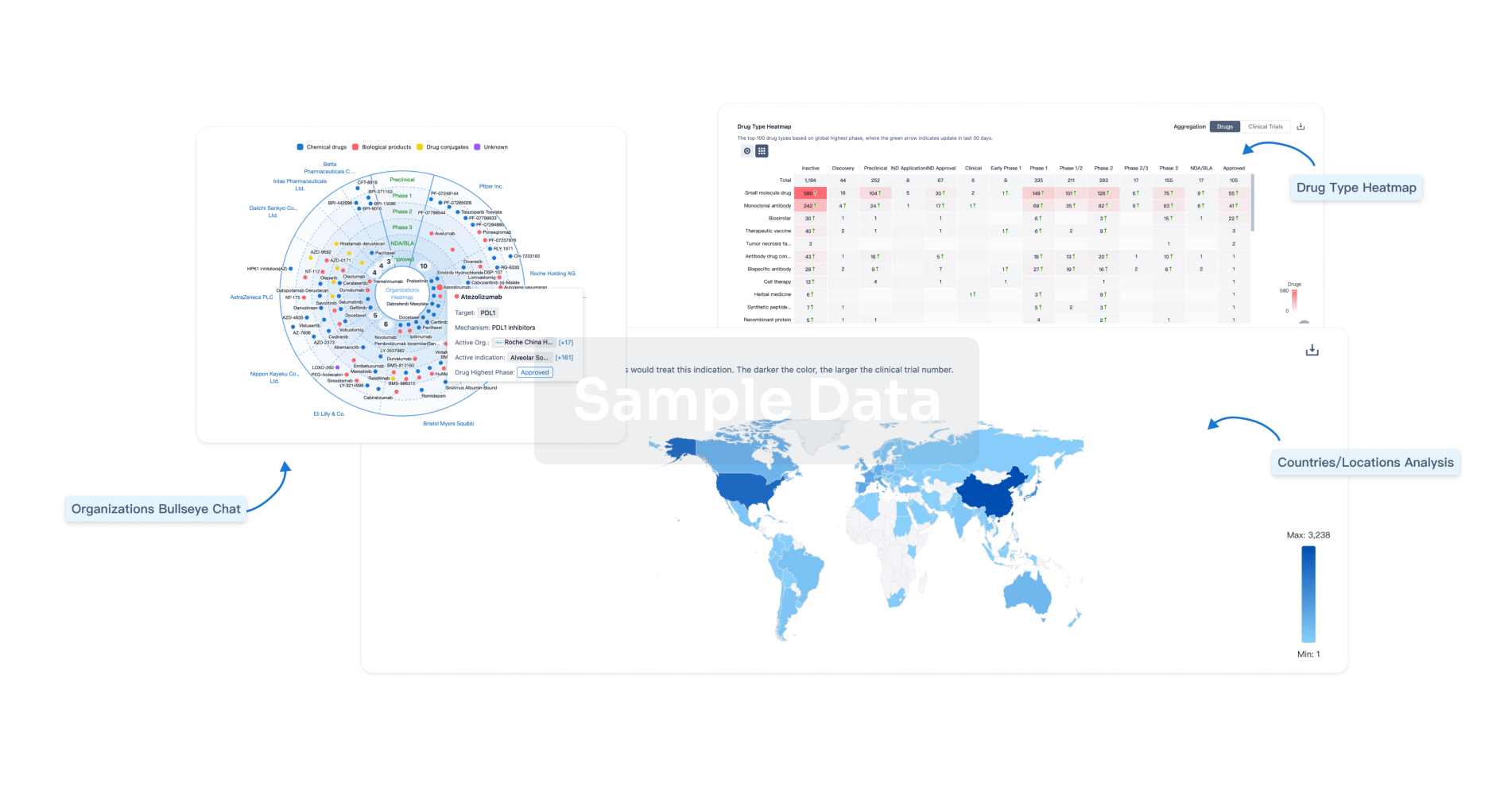Request Demo
Last update 08 May 2025
Linitis Plastica
Last update 08 May 2025
Basic Info
Synonyms Leather-bottle stomach, Linitis Plastica, Linitis plastica + [18] |
Introduction A condition where the stomach wall becomes thickened, rubbery and loses its ability to distend. The stomach assumes a "leather bottle" shape. It is most often seen in adenocarcinoma of the stomach. The term is often used synonymously with diffuse adenocarcinoma of the stomach. |
Related
1
Drugs associated with Linitis PlasticaMechanism FGFR3 antagonists [+4] |
Active Org. |
Originator Org. |
Active Indication |
Inactive Indication |
Drug Highest PhasePhase 2 |
First Approval Ctry. / Loc.- |
First Approval Date20 Jan 1800 |
2
Clinical Trials associated with Linitis PlasticaNCT06451211
Phase II Study of Neoadjuvant Immunotherapy Plus Chemotherapy in Borrmann Type 4 and Large Type 3 Gastric Cancer (Neo-ICEBOAT Study)
The aim of this study is to test the efficacy and safety of immunotherapy plus chemotherapy on people with a relatively rare type of gastric cancer. Participants will take the anti-PD-1 inhibitor (Tislelizumab) and platinum-based chemotherapy (oxaliplatin + capecitabine or oxaliplatin + S-1) in a 3-week cycle, followed by a radical operation after 6 cycles.
Start Date17 May 2023 |
Sponsor / Collaborator |
NCT01576380
A Single-arm, Multi-center, Phase II Study to Evaluate Efficacy and Safety of Dovitinib (TKI258) in Adult Patients With Advanced Scirrhous Gastric Carcinoma That Have Progressed After One or Two Prior Systemic Treatments
This is a prospective, open-label, single-arm, non-randomized, multi-center, phase II proof of concept (PoC) study with a two-stage design and Bayesian interim monitoring to evaluate efficacy and safety of single agent TKI258 in adult patients with scirrhous gastric carcinoma (SGC) that have progressed after one or two prior systemic treatments.
Start Date01 Jun 2012 |
Sponsor / Collaborator |
100 Clinical Results associated with Linitis Plastica
Login to view more data
100 Translational Medicine associated with Linitis Plastica
Login to view more data
0 Patents (Medical) associated with Linitis Plastica
Login to view more data
587
Literatures (Medical) associated with Linitis Plastica03 Apr 2025·Scandinavian Journal of Gastroenterology
Identification of novel biomarkers for gastric adenocarcinoma through two-sample Mendelian randomization analysis of the human plasma proteome
Article
Author: Guo, Zhanfei ; Zhang, Zhiwei ; Liu, Yanbao ; Huo, Zhongchao ; Tian, Jingjing ; Cai, Qingrui ; Li, Shiying
07 Mar 2025·Cureus
Atypical Presentation of Metastatic Breast Cancer: Gastric Outlet Obstruction and Linitis Plastica
Article
Author: Smith, Riley L ; Ross, Cassidy ; Patel, Arpankumar
04 Mar 2025·Minimally Invasive Therapy & Allied Technologies
Endoscopic ultrasound-guided bite-on-bite biopsy and endoscopic ultrasound-guided fine-needle aspiration in the diagnosis of gastric tumors with negative malignant endoscopy biopsies: a retrospective cohort study
Article
Author: Wang, Yongjun ; Chu, Yi ; Lv, Liang ; Tan, Yuyong ; Liu, Deliang ; Min, Liang ; Chen, Jiefei ; Zhu, Hongyi ; Jin, Yan ; Zhou, Yuqian ; Liang, Chengbai
Analysis
Perform a panoramic analysis of this field.
login
or

AI Agents Built for Biopharma Breakthroughs
Accelerate discovery. Empower decisions. Transform outcomes.
Get started for free today!
Accelerate Strategic R&D decision making with Synapse, PatSnap’s AI-powered Connected Innovation Intelligence Platform Built for Life Sciences Professionals.
Start your data trial now!
Synapse data is also accessible to external entities via APIs or data packages. Empower better decisions with the latest in pharmaceutical intelligence.
Bio
Bio Sequences Search & Analysis
Sign up for free
Chemical
Chemical Structures Search & Analysis
Sign up for free


